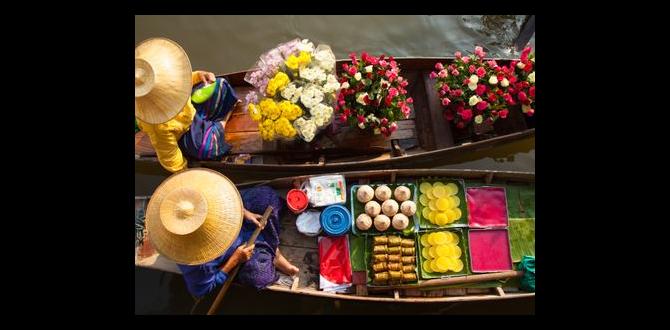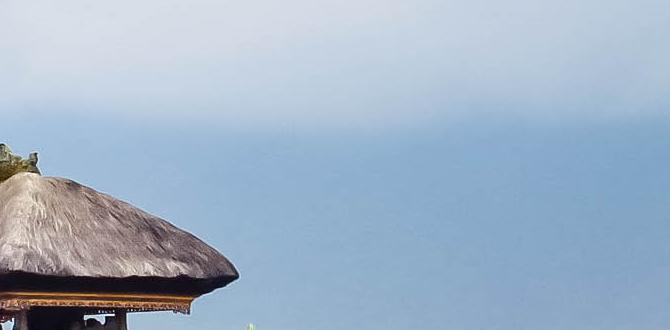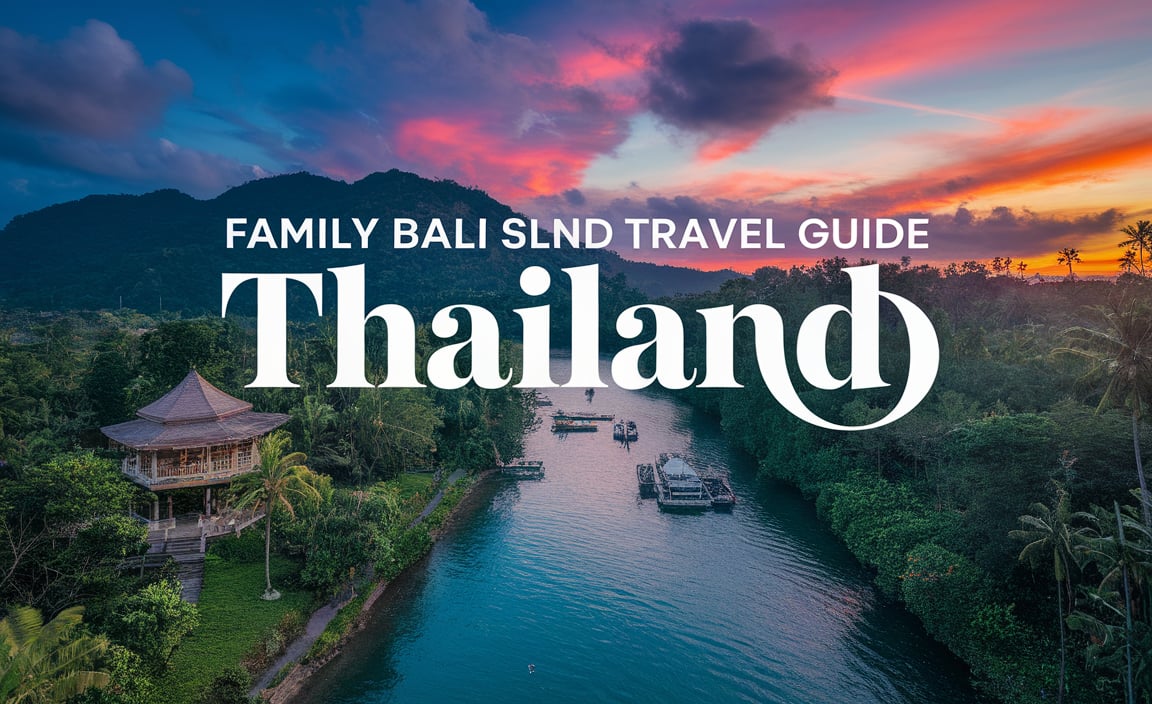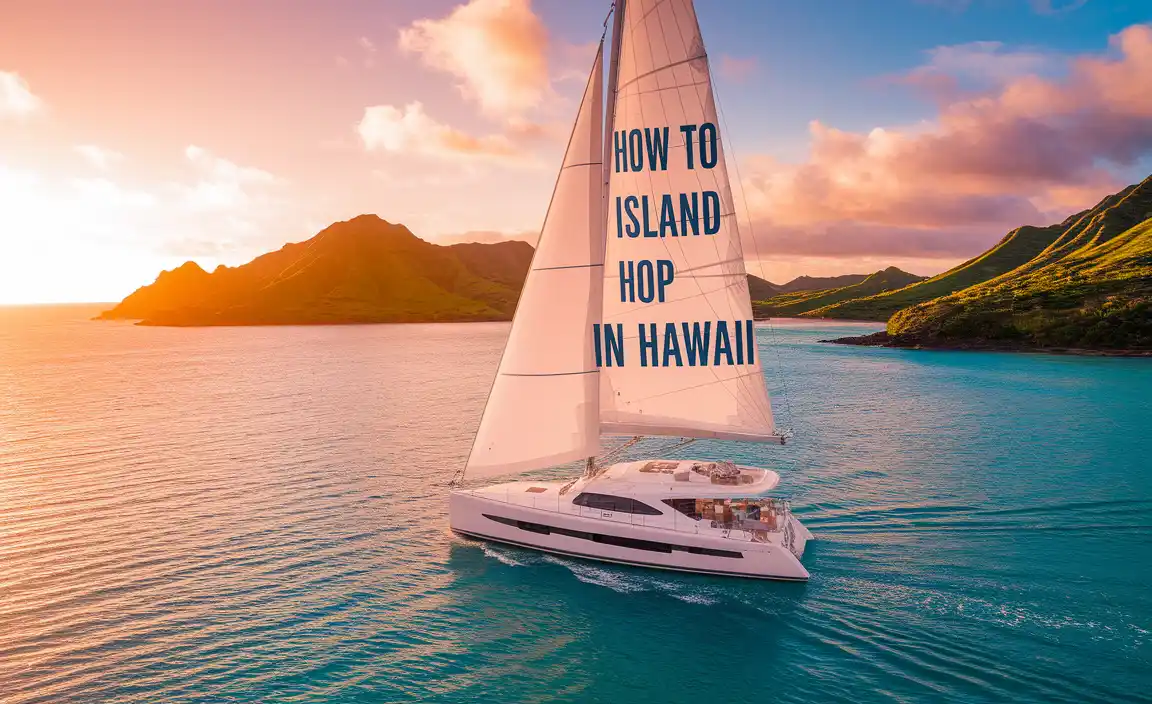Explore Algiers thoroughly with this 14-day itinerary. It balances historical sites, cultural immersion, and relaxing moments, perfect for first-time visitors. Discover hidden gems and local life with practical tips for a comfortable and unforgettable trip.
Algiers, the “Balcony on the Mediterranean,” is a city that whispers tales of history from every corner. Planning a two-week trip can seem a bit daunting, especially when you want to soak in its unique atmosphere without feeling rushed.
Many travelers wonder where to begin, how to weave through bustling souks, and find moments of peace amidst the vibrant energy. Let’s simplify your adventure! This guide is crafted to ensure you experience the best of Algiers comfortably and confidently, covering everything from iconic landmarks to local flavors.
Planning Your 2 Weeks in Algiers: A Quick Overview
This itinerary is designed to offer a rich and varied experience of Algiers over 14 days. It blends iconic sights with opportunities to discover lesser-known treasures. We’ll move at a comfortable pace, allowing for exploration, relaxation, and spontaneous discoveries.
Essential Pre-Trip Tips
Before you even pack your bags, a little preparation goes a long way in ensuring a smooth Algiers experience.
- Visa Requirements: Check Algeria’s visa policy for your nationality well in advance. Many nationalities require a visa obtained from an Algerian embassy or consulate before traveling. The official website of the Algerian Ministry of Foreign Affairs is a good resource for up-to-date information.
- Best Time to Visit: Spring (April-May) and Autumn (September-October) offer pleasant weather, ideal for exploring. Summers can be quite hot.
- Currency: The Algerian Dinar (DZD) is the official currency. While ATMs are available in the city, it’s wise to carry some cash, especially for smaller purchases in the medina.
- Language: Arabic and Tamazight are the official languages. French is widely spoken in business and academic circles, and many people involved in tourism will speak some English. Learning a few basic Arabic phrases like “Salam Alaikum” (Hello) and “Shukran” (Thank you) will be appreciated.
- Local Etiquette: Dress modestly, especially when visiting religious sites. This means covering shoulders and knees. It’s also respectful to ask permission before taking photos of people.
- Transportation: Algiers has a metro system, buses, and taxis. Negotiate taxi fares before starting your journey or ensure the meter is used. Ride-sharing apps are also increasingly available.
- Connectivity: Consider getting a local SIM card for affordable data for navigation and communication. Many hotels and cafes offer Wi-Fi.
- Health & Safety: Consult your doctor about any necessary vaccinations. Stick to bottled water. Be aware of your surroundings, especially in crowded areas, and keep valuables secure.
Comfortable Travel Essentials
As Michael C. Herrera of Journey Essentials, I always stress that comfort is key to enjoying your travels. For a city like Algiers, with its mix of exploration and relaxation, having the right gear makes all the difference.
- Lightweight, Breathable Clothing: Pack layers that are comfortable in varying temperatures. Think linen shirts, cotton trousers, and a light jacket.
- Comfortable Walking Shoes: You’ll be doing a lot of walking, especially in the Kasbah. Comfortable, sturdy shoes are non-negotiable.
- Sun Protection: A wide-brimmed hat, sunglasses, and high-SPF sunscreen are essential.
- Reusable Water Bottle: Stay hydrated and reduce plastic waste.
- Daypack: For carrying your essentials – water, snacks, camera, sunscreen, and any souvenirs.
- Personal Care Items: Don’t forget essentials like hand sanitizer and any personal medications. For longer trips or specific needs, having discreet and comfortable personal care items like adult diapers or child diaper options can provide immense peace of mind, ensuring you can focus on your journey without worry.
Your 2-Week Algiers Itinerary: A Daily Breakdown
This itinerary balances iconic landmarks with local experiences, offering a comprehensive immersion into Algiers.
Week 1: Historical Heart and Coastal Charm
Day 1-2: Arrival and the Majestic Kasbah
Arrival: Settle into your accommodation. Take it easy, perhaps a gentle walk around your neighborhood to get your bearings.
Day 1 Afternoon: Begin your exploration with a visit to the iconic Notre Dame d’Afrique. This stunning basilica offers panoramic views of the city and the bay. It’s a peaceful spiritual spot with breathtaking architecture.
Day 2: The Kasbah of Algiers: Dedicate a full day to exploring the labyrinthine streets of the UNESCO World Heritage-listed Kasbah. Get lost (intentionally!) in its narrow alleys, discover hidden courtyards, traditional houses, and small mosques.
- Visit the Djamaa el-Jdid (New Mosque) and the Djamaa Ketchaoua (Great Mosque), experiencing their unique historical significance and architectural styles.
- Wander through the souks, looking for artisanal crafts, spices, and traditional clothing.
- Enjoy a traditional Algerian lunch at a local eatery within the Kasbah.
Ensure you have comfortable shoes for the cobblestone streets and be prepared to navigate winding passages. It’s a place that rewards slow, deliberate exploration. For a deeper dive into its history, you might find resources from UNESCO helpful.
Day 3: Museums and City Views
Morning: Immerse yourself in Algerian history and art at the newly renovated Musée National des Beaux-Arts (National Museum of Fine Arts). It houses an impressive collection of Algerian and European art.
Afternoon: Ascend to the top of the Monument des Martyrs (Maqam Echahid). This imposing concrete monument commemorates Algerian independence and offers sweeping views of Algiers and its bay.
Evening: Enjoy a leisurely stroll along the Promenade des Sablettes, a beautiful waterfront area, with plenty of cafes to relax and watch the sunset.
Day 4: The Old City and Presidential Palace Area
Morning: Explore the Hôtel de Ville (City Hall) and the surrounding Placeaudien. Admire the Belle Époque architecture that characterizes this part of the city.
Afternoon: Walk towards the Kouba Mosque, an important religious site, and then make your way towards the area surrounding the Palais Présidentiel, observing the stately buildings and avenues. Remember to be respectful of any restricted areas.
Evening: Discover traditional Algerian cuisine at a restaurant in the city center. Look for dishes like Couscous or Mechoui.
Day 5: El Biar and Gardens
Morning: Visit the charming district of El Biar, known for its leafy streets and colonial-era villas. It offers a different, more tranquil perspective of Algiers.
Afternoon: Explore the Jardin Botanique du Hamma (also known as Jardin d’Essai du Hamma). This expansive botanical garden is a verdant oasis, perfect for a peaceful afternoon stroll, filled with exotic plants and landscapes.
Evening: Enjoy dinner in the El Biar area, known for its good restaurants.
Day 6: Day Trip to Tipasa
Full Day: Take a day trip to the ancient Roman ruins of Tipasa, a UNESCO World Heritage site located on the Mediterranean coast, about an hour west of Algiers.
- Explore the well-preserved Roman amphitheater, baths, forum, and basilicas.
- Visit the adjacent Numidian Royal Mausoleum (Tombeau de la Chrétienne), an enigmatic conical tomb.
- Enjoy the coastal scenery and the archaeological park.
Transportation can be arranged via pre-booked tours, private car, or public transport. The drive itself offers lovely coastal views. For more information on the site, consult UNESCO’s World Heritage Centre.
Day 7: Modern Algiers and Shopping
Morning: Explore more contemporary aspects of Algiers. Visit the Galerie Nationale d’Art Contemporain if you’re interested in modern Algerian art.
Afternoon: Indulge in some shopping. Visit modern shopping centers like Ardis or explore the upscale boutiques in areas like Hydra. Alternatively, delve back into the Kasbah for unique handicrafts.
Evening: Enjoy a final relaxing evening of week one, perhaps revisiting a favorite spot or trying a new restaurant.
Week 2: Culture, Cuisine, and Coastal Escapes
Day 8: Pêcherie and the Old Port
Morning: Head to the Pêcherie, the old fishing port. Experience the bustling morning fish market and soak in the authentic maritime atmosphere.
Afternoon: Walk along the waterfront and perhaps visit the Musée National de l’Antiquité et des Arts Islamiques (National Museum of Antiquities and Islamic Arts) for a deeper understanding of Algeria’s rich heritage.
Evening: Enjoy fresh seafood at one of the many restaurants near the port.
Day 9: Gouraya National Park (Optional Day Trip)
Full Day: For nature lovers, consider a day trip to Gouraya National Park, located near Bejaia (this is a longer day trip, about 2-3 hours drive from Algiers, so best if you have private transport or a tour). The park offers stunning coastal scenery, coves, and hiking opportunities. It provides a beautiful escape into nature and is known for its unique rock formations.
Alternative (if Gouraya is too far): Explore the Bouchaoui Forest on the outskirts of Algiers for a shorter nature escape.
Day 10: Algerian Cuisine Deep Dive
Morning/Afternoon: Participate in an Algerian cooking class to learn the secrets behind classic dishes like Tagine or Rayesh. This is a fantastic way to connect with the local culture through its food. Many local culinary schools or private chefs offer these experiences. You can often find options through local tourism offices or by asking your hotel for recommendations.
Evening: Enjoy the fruits of your labor during your cooking class, or dine out at a restaurant known for its authentic home-style cooking.
Day 11: Culture and Coffee in Sid-Abdellah
Morning: Explore the modern development of Sid-Abdellah, a new city project designed to be a hub of innovation and urban living. While it’s a modern contrast to the old city, it offers insight into Algeria’s future urban planning.
Afternoon: Find a local café in a more residential neighborhood. Sit, sip on a mint tea or coffee, and observe daily life. This is where you discover the unscripted Algiers.
Evening: Casual dinner in a local restaurant.
Day 12: Day Trip to Cherchell
Full Day: Take another historical day trip, this time to Cherchell**, an ancient Phoenician and Roman city with significant archaeological sites.
- Visit the Roman Theater, the Nymphaeum, and the museum, which houses impressive Roman statuary.
- Enjoy the charming coastal town atmosphere.
Cherchell offers a different perspective on Algeria’s Roman past compared to Tipasa, with some unique artifacts on display. It’s another journey back in time, rich with history.
Day 13: Relaxation and Souvenir Hunting
Morning: Enjoy a slower pace today. Perhaps revisit a favorite spot, or spend more time browsing the souks for unique souvenirs. Look for traditional carpets, leather goods, ceramics, or intricate metalwork.
Afternoon: Relax at a picturesque cafe, overlooking the sea or a lively square. Reflect on your journey and enjoy the Mediterranean ambiance. You might consider visiting a hammam (traditional bathhouse) for a deeply relaxing experience.
Evening: Enjoy a farewell dinner at a restaurant of your choice, perhaps one with live traditional music.
Day 14: Departure
Morning: Enjoy one last Algerian breakfast. Depending on your flight schedule, you might have time for a final walk or some last-minute souvenir shopping.
Departure: Head to Houari Boumediene Airport (ALG) for your onward journey.
Sample Daily Schedule Table
To visualize the flow, here’s a sample of how a few days might look. This is a template you can adjust based on your energy levels and interests.
| Day | Morning Activity | Lunch | Afternoon Activity | Evening Activity |
|---|---|---|---|---|
| Day 2 | Explore the Kasbah: Djamaa el-Jdid, souks | Traditional Algerian at Kasbah eatery | Continue Kasbah exploration, discover hidden alleys | Dinner in the Kasbah area, experience evening atmosphere |
| Day 5 | Visit El Biar district | Casual cafe in El Biar | Explore Jardin Botanique du Hamma | Dinner in El Biar |
| Day 10 | Algerian Cooking Class (part 1) | Enjoy the dishes prepared during the class | Algerian Cooking Class (part 2) / Free time | Relax or enjoy a light meal |
Getting Around Algiers
Navigating Algiers is part of the adventure! Here’s a breakdown of your options:
- Metro Algiers: The modern metro system is efficient and covers key areas of the city, connecting the airport to downtown and extending to various districts. It’s a clean and budget-friendly way to travel.
- Taxis: Taxis are plentiful. Always agree on a fare before you start your journey, or insist on using the meter if available. Ride-sharing apps can offer fixed prices.
- Buses: An extensive bus network operates throughout Algiers, useful for reaching areas not covered by the metro. Routes can be complex for newcomers.
- Walking: The best way to experience neighborhoods like the Kasbah or the Corniche is on foot. Ensure you wear comfortable shoes.
- Tours: For day trips to places like Tipasa or Cherchell, pre-booked tours or hiring a private driver can be convenient, especially if you prefer guided explanations. Websites like Responsible Travel often list vetted tour operators for Algeria.
Food Highlights to Try
Algerian cuisine is a delicious blend of Mediterranean, Berber, and Arab influences. Don’t leave without tasting:
- Couscous: The national dish, often served with vegetables and meat (lamb or chicken).
- Mechoui: Slow-roasted lamb or mutton, incredibly tender and flavorful.
- Tagine: A slow-cooked stew, typically made with meat, vegetables, and aromatic spices, prepared in a conical clay pot.
- Chorba: A hearty soup, often a rich broth with lamb, vegetables, and vermicelli, especially popular during Ramadan.
- Rayesh/Boulajine: A savory meat-filled pastry, often enjoyed as a snack or light meal.
- Pastries: Indulge in sweet treats like Makroudh (semolina cookies with dates) or Ghoriba (almond cookies).
- Mint Tea: A ubiquitous, sweet, and refreshing drink.
FAQs
Is Algiers safe for tourists?
Algiers is generally safe for tourists, especially in well-trafficked areas and tourist sites. As with any major city, it’s essential to exercise common sense: be aware of your surroundings, avoid displaying excessive wealth, and keep valuables secure. Stick to well-lit areas at night and use reputable transportation. Tourism infrastructure is good in the main areas.
What is the best way to get from Algiers Airport (ALG) to the city center?
The most convenient options are to take a taxi or the Al Badr metro line. Taxis are readily available outside the terminal. The metro is an affordable option, connecting the airport to the city center, with stations like “Aissat Idir” and “Grande Poste.” Ensure you use official taxis or ride-sharing apps. It’s advisable to check the latest





